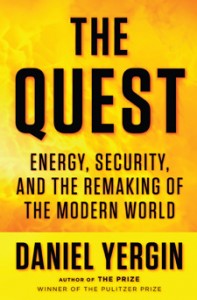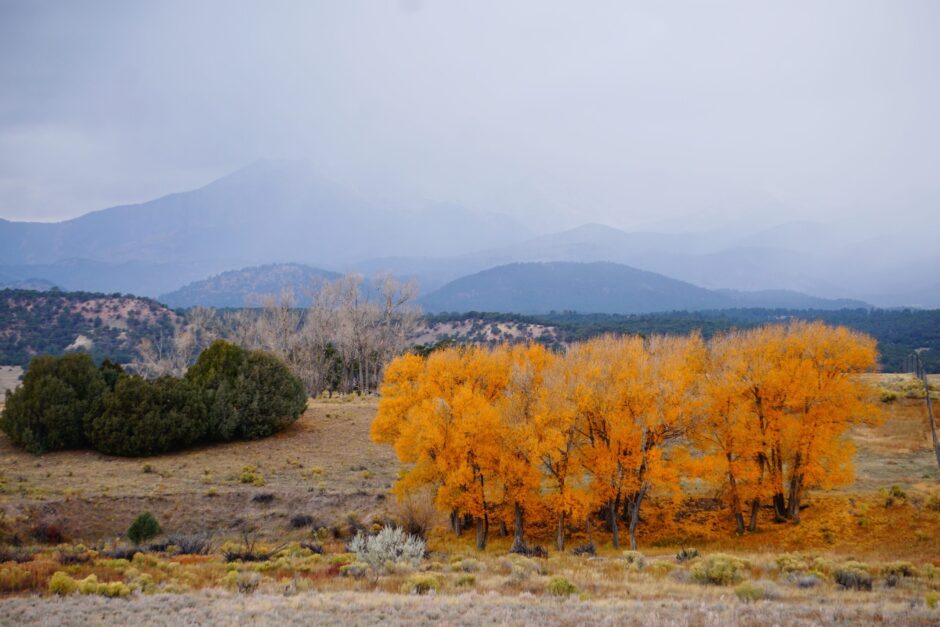So I’m reading the much-talked-about new tome on energy and the future, Daniel Yergin’s The Quest: Energy, Security, and the Remaking of the Modern World, just published. So far I’m not particularly impressed, especially after Dwight Garner’s rave review in the NY Times, which offers this rather dim-witted/simplistic rebuttal to the “peak oil” theorists:
“He considers the notion of “peak oil” — the idea that the world’s supply is rapidly running out — and mostly dismisses it. Thanks to new technologies, estimates of the world’s total stock keep growing. But there are other reasons to move beyond oil, not all of them ecological.”
Yergin states: “Oil production today is five times greater than it was in 1957” (I’m reading it on Kindle, so don’t have a page number to cite.)
That’s all fine and dandy, and simplistic to the point of being misleading. Sure, production is greater, technologies have advanced, there is plenty of oil and we’re not “running out” soon, which the more analytic and level-headed warnings about peak oil theory acknowledge. But oil is finite, and all the greater technology is simply allowing the oil industry to obtain it from more and more difficult sources, such as the deep-water well that malfunctioned in the Gulf of Mexico. How much higher is the world’s population now than in 1957? (A webpage called About.com-Geography claims the world population was 2.8 billion in 1955, 6.8 billion now.) How much higher is our energy and oil use than in 1957? (Yergin’s book begins with a recounting of how astronomic our energy usage has become.)
Imagine a forest, a wood pile, and a bonfire. The bonfire is our usage, the forest the total oil on Earth, and the wood pile is what we find and produce. The wood pile may grow larger, but the forest has only so many trees in it. Eventually all of them will be cut down, logical thinking suggests. Jared Diamond does a great analysis of this dynamic in his excellent book Collapse, which contains a chapter about the natives of Easter Island, who apparently cut down all their trees to build the rollers for their massive statues, then perished from ecological collapse.
And for some reason, logic seems to get tossed out the window for many in this argument about peak oil, including by some of its proponents. But this is logical: Oil is a finite commodity. We are getting better and better at finding it, and burning it. The last “Super Giant” oil field was discovered decades ago, and we continue to rely on those (mainly in Saudi Arabia) for the bulk of the world’s oil production. It’s not actually “running out,” which is too simplistic. But it will get more and more expensive to obtain. That idea behooves us to change our ways to greater conservation, and efficiency—which is one thing Daniel Yergin does argue in The Quest. And if we find and burn all we have on Earth, we will have wrecked the atmosphere so severely we will be living in an essentially changed, and most likely chaotic, future.
On another subject altogether, although linked to the reality/spin-doctoring that seems to dominate media these days, there’s this witty rebuttal to a dissing of the “knowledge” of fiction:
Being a novelist, sure, I’m biased toward fiction, toward the role that stories play in culture and civilization. It’s a way we tell ourselves what’s important. It’s a way we communicate our visions of the past and future.

- February 2026
- January 2026
- November 2025
- October 2023
- September 2023
- September 2021
- April 2020
- September 2019
- May 2019
- August 2018
- February 2018
- January 2018
- October 2017
- August 2017
- June 2017
- May 2017
- March 2017
- February 2017
- November 2016
- October 2016
- May 2016
- April 2016
- March 2016
- February 2016
- January 2016
- November 2015
- October 2015
- September 2015
- June 2015
- May 2015
- April 2015
- March 2015
- December 2014
- September 2014
- August 2014
- May 2014
- March 2014
- February 2014
- January 2014
- December 2013
- November 2013
- October 2013
- September 2013
- August 2013
- July 2013
- June 2013
- May 2013
- April 2013
- March 2013
- February 2013
- January 2013
- December 2012
- November 2012
- October 2012
- September 2012
- August 2012
- July 2012
- June 2012
- May 2012
- April 2012
- March 2012
- February 2012
- January 2012
- December 2011
- November 2011
- October 2011
- September 2011
- August 2011
- July 2011
- June 2011
- May 2011
- April 2011
- March 2011
- February 2011
- January 2011
- December 2010
- November 2010
- October 2010
- September 2010
- August 2010
- July 2010
- June 2010
- May 2010
- April 2010
- March 2010
- February 2010
- January 2010
- December 2009
- November 2009
- October 2009
- September 2009
- August 2009
- July 2009
- June 2009
- May 2009
- April 2009
- March 2009
Recent Posts
- On Candice Millard’s “River of Doubt” and “River of the Gods”: Bugs, Snakes, and Disease Aplenty
- More Alone than “Alone”: On Adam Shoalts’s “Vanished Beyond the Map: The Mystery of Lost Explorer Hubert Darrell” (2025)
- Rachel McAdams film “Send Help” (2026) Makes Comic Gold Out of “Survivor” and “Alone” Audition Videos
- “The Wiggle Room”: A Short Story
- On the New Film “Grizzly Night,” Based on the Nonfiction Book “Night of the Grizzly” (1971)
Recent Comments
No comments to show.
